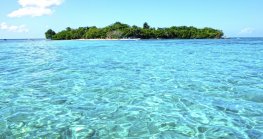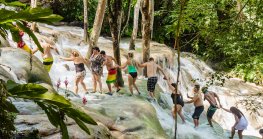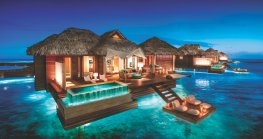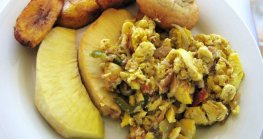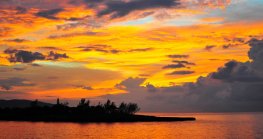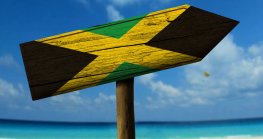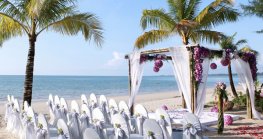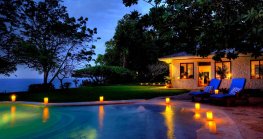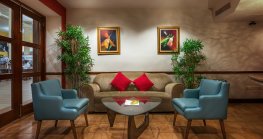Ed Bartlett, Exciting times Beckon-A sit down with Jamaica’s Minister of Tourism. By: Ken Goldsmith
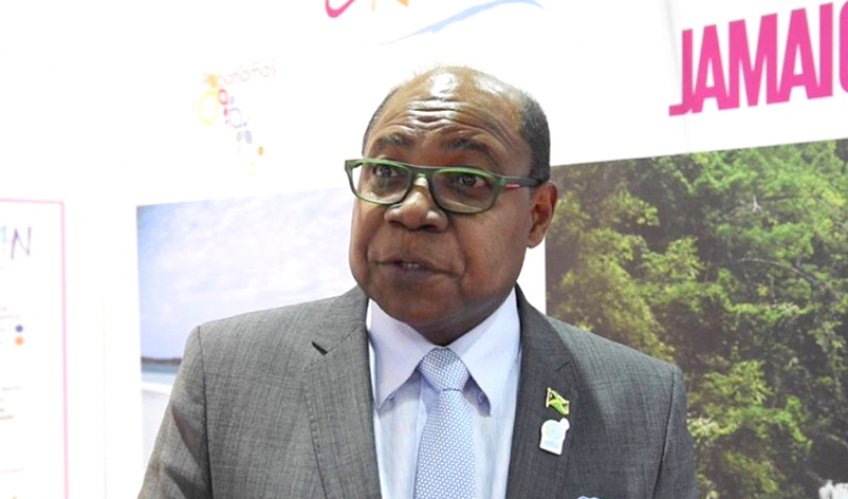
He calls it the “irie” and at the helm of a $2.2 billion industry, Edmund Bartlett wants us all to feel it. As Minister of Tourism in Jamaica, Bartlett identifies this sense of love and wonder as the most important component to any visitor’s trip to the island. Well, that and a culinary adventure to “Scotchies,” home of Jamaican jerk chicken.
Only several months into his second tenure as the leader of tourism, it is clear Bartlett is where he wants to be. His voice rises as he speaks of his fellow Jamaican islanders. His hands punctuate each syllable as if he’s drawing a literal picture as he speaks. “I think the iconic attraction is really our people. And that is what we invite the world to come to know-- this experience called the ‘Jamaican people.’ Because once you get into their hearts, they get into yours immediately.”
While many people try to capture the essence of tourism by referencing physical landmarks, accommodations and dollar amounts, Bartlett eludes to something much more profound. Although luxury resorts are sprinkled throughout the 4,213 square mile island, they shouldn’t be the emphasis, says the tourism expert. Acknowledging that big businesses are integral to the country’s success, he doesn’t want to disregard the folks lower on the figurative totem pole. “We need the big investors to create the critical mass but we need the indigenous to deliver on the inputs. So when the visitor comes, their experience is our experience.”
The role of marketing, then, is to advertise an experience. As if to emphasize the point, Bartlett elaborates. “And the experience is not from the hotel. It’s from the people. And the geophysical endowments that we have and how we as a people harmonize our ideas with the physical attributes that are around us.” To be clear, the physical attributes Bartlett references include lush vegetation, limestone hills and coastal plateaus. There’s no denying that this corner of the Caribbean is beautiful. Rolling waterfalls cascade down the mountainside. Water the color of jadestone provides a serene backdrop. This beauty, explains Bartlett, is only possible through a strategic balance of big business and the small to medium players. “If the tourism industry becomes what I call ‘a plantation owned by absentee proprietors,’ the social order will not be preserved and the misery levels within the society will increase.”
On the other hand, if indigenous people are actively involved in the economy, he suggests, “It’s a beautiful confluence of local and foreign investment that now makes for a harmonious operation and builds out the strategies for a successful destination.” While in recent years Jamaica ushered in more tourists than ever before, Bartlett wants to see this trend continue. His smile, at times wry and at times almost boy-like with huge dimples and only a small glimpse of teeth, is notably excited as he discusses the prospect. Now that the doors have opened to Cuba, he iterates, there is even more potential for growth.
“We see Cuba’s entry now as completing the geographic circle that will drive new tourism and create a new diplomacy within that space. We are saying that it is about competitiveness only as a region, but it is about collaboration as individual states. We are looking for economic conversions rather than commodity competitiveness,” he explains. Whether Jamaica is poised to overtake Hawaii and Greece as Trip Advisor’s happiest and best tourist destination in the world remains to be seen.
For the time being, Bartlett is satisfied knowing that the island comfortably sits in the number three spot. After all, there is plenty of ire to go around.
ED
© 2019 Jamaica Experiences All Rights Reserved





